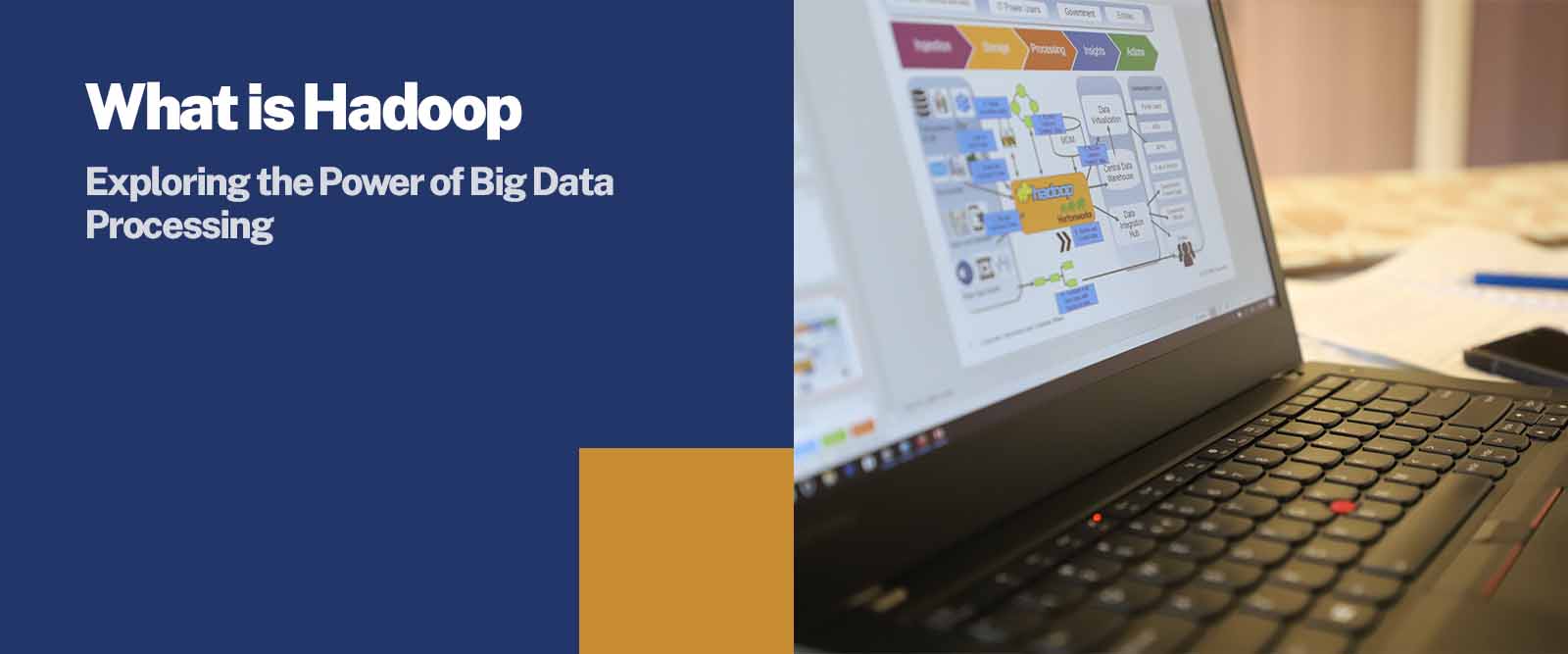5800 students unlocked their dream jobs with UG/PG programs in top colleges. Apply Now!
In recent years, Hadoop has become one of the most widely used big data processing tools. Anyone who got into big data processing after completing their BCA program is either working in Hadoop technology or learning it.
If you also want to learn big data, you can consider pursuing a Bachelor of Computer Applications or BCA degree, which is an undergraduate course. But this blog post will not talk more about BCA programs, but it will explore what Hadoop means and how it works. So, if you are curious about big data processing, read on to learn more about the Hadoop definition.
[Also read: top technology trends]
Hadoop Meaning: What is Hadoop?
Businesses generate vast amounts of data every day, from customer information to financial transactions. This data provides valuable insights that can help one make informed decisions. However, managing and processing this data can be challenging, especially regarding Big Data (too-large or complex datasets).
This is where Hadoop comes into play.
Hadoop is an open-source software framework designed to store, process, and analyse big data in a distributed computing environment. Hadoop's ability to handle large datasets, fault-tolerant architecture and cost-effectiveness have made it a popular choice for businesses of all sizes.
(Also read: Best Paying Jobs in Technology)
Four Main Components of Hadoop
- Hadoop Distributed File System (HDFS) - a distributed file system that stores data across multiple machines in a cluster.
- MapReduce - a programming model and processing framework that allows for distributed processing of large data sets across multiple nodes in a cluster.
- Yet Another Resource Negotiator (YARN) - a resource management layer that manages resources (CPU, memory, etc.) across the cluster and schedules jobs to run on the available resources.
- Hadoop Common - a set of utilities and libraries used by other Hadoop modules.
These components work together to provide a scalable and fault-tolerant platform for storing, processing, and analysing large datasets in a distributed computing environment.
How Hadoop Works
Hadoop works by breaking down large datasets into smaller chunks and distributing them across a cluster of computers, allowing for parallel data processing. Here is how Hadoop works in more detail:
- Data Storage
Hadoop technology uses Hadoop Distributed File System (HDFS) to store large datasets across multiple machines in a cluster. HDFS is designed to be highly fault-tolerant and can handle hardware failures by replicating data across multiple nodes.
- Data Processing
Hadoop uses a programming model and processing framework called MapReduce to process data in a distributed environment. MapReduce works by breaking down data into smaller chunks and distributing them across multiple nodes in a cluster. Then, each node processes the data locally, combining the results to produce the final output.
- Resource Management
Hadoop uses Yet Another Resource Negotiator (YARN) to manage resources across the cluster. YARN schedules jobs to run on the available resources and manages resources such as CPU, memory, and disk.
- Job Execution
YARN allocates resources and starts the containers on the nodes when a job is submitted to the Hadoop cluster. Then, each container runs a MapReduce task, and the results are combined to produce the final output.
- Monitoring and Management
Hadoop provides various tools for monitoring and managing the Hadoop cluster. For example, Hadoop Distributed File System (HDFS) provides a web interface for monitoring the status of the file system. Similarly, YARN provides a web interface for monitoring and managing resources across the cluster.
Benefits of Hadoop
Hadoop offers several benefits to businesses and organisations that store, process, and analyse large datasets. Here are some of the key benefits of Hadoop:
- Scalability: Hadoop is highly scalable, which means it can handle large datasets and grow with your business needs. Hadoop can be easily scaled by adding more nodes to the cluster, allowing businesses to store and process large amounts of data.
- Fault Tolerance: Hadoop is designed to be highly fault-tolerant, which means it can continue to function even if there are hardware failures or other issues. Hadoop stores data across multiple nodes in a cluster, so if one node fails, the data can be retrieved from another node.
- Cost-Effectiveness: Hadoop is cost-effective because it is an open-source software framework that runs on commodity hardware. This means that businesses can use low-cost hardware to store and process large datasets, reducing the total cost of ownership.
- Flexibility: Hadoop is a flexible platform that can be used for a wide range of data processing and analysis tasks. Hadoop supports various programming languages, tools, and frameworks, making it easy to integrate with existing systems and workflows.
- Speed: Hadoop can process large datasets quickly by distributing data and processing across multiple nodes in a cluster. This parallel processing approach allows businesses to process large amounts of data in a shorter time than traditional data processing methods.
Overall, Hadoop technology offers businesses a powerful and cost-effective platform for storing, processing and analysing large datasets. With Hadoop, businesses can gain valuable insights from their data, make informed decisions, and stay competitive in today's data-driven world.
Conclusion
Hadoop is a powerful and versatile platform that can help businesses and organisations store, process, and analyse large datasets. It is an industry-focused tool that has recently drawn many enthusiasts. Register with any Sunstone-powered colleges offering tech degrees if you want to develop such job-focused skills. Once you pay Sunstone’s fees (on top of your college fees), you will get access to hundreds of hours of skill development training modules.
FAQ - Hadoop
What is Hadoop architecture?
Hadoop architecture is a framework for storing and processing large datasets across multiple machines in a distributed computing environment. It consists of four main components: the Hadoop Distributed File System (HDFS), Yet Another Resource Negotiator (YARN), MapReduce, and Hadoop Common.
Why is Hadoop used?
Hadoop is currently one of the top technology trends used for storing, processing, and analysing large datasets in a distributed computing environment. It offers several benefits, such as scalability, fault tolerance, cost-effectiveness, and flexibility, making it an ideal platform for big data processing.
Is Hadoop a programming language?
No, Hadoop is not a programming language. It is an open-source software framework that supports several programming languages, such as Java, Python, and R. Hadoop provides a programming model and processing framework called MapReduce for distributed processing of large datasets.
HELP
Take the first step towards your dream job.
ABOUT THE AUTHOR


